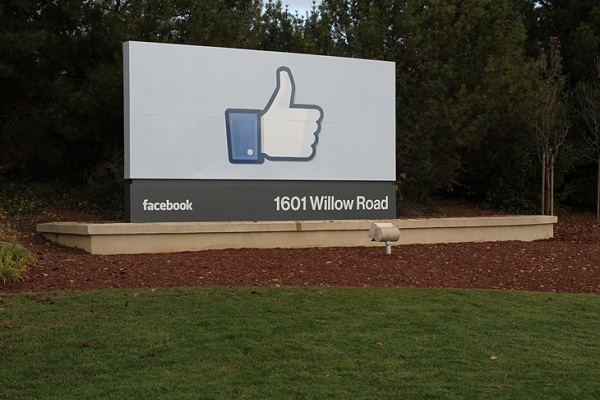Facebook to pay significantly more in UK tax
Social network giant making tax changes to be “more transparent”

Facebook is to pay millions more in UK tax following changes to its tax structure.
The world's biggest social network has been under criticism for paying low tax rates, despite the UK being one of its most significant markets outside of the US.
Facebook will not longer divert sales through its Ireland division for its largest advertisers, according to an internal memo.
Companies such as Sainsbury's, Tesco, healthcare goods manufacturer Unilever and advertising group WPP will all be handled by its UK division.
By booking advertising through its UK division, its is believed Facebook will account for substantially more revenue, and will pay a higher level of corporation tax at least 20 per cent on profits in the UK as a result.
The changes are due to take place from 1 April, and the social networks first inflated tax bill will be at the start of the 2017 fiscal year.
A Facebook spokesman provided the following statement which matches that of the internal update to IT Pro: "On Monday we will start notifying large UK customers that from the start of April they will receive invoices from Facebook UK and not Facebook Ireland.
Get the ITPro daily newsletter
Sign up today and you will receive a free copy of our Future Focus 2025 report - the leading guidance on AI, cybersecurity and other IT challenges as per 700+ senior executives
"What this means in practice is that UK sales made directly by our UK team will be booked in the UK, not Ireland. Facebook UK will then record the revenue from these sales.
"In light of changes to tax law in the UK, we felt this change would provide transparency to Facebook's operations in the UK.
"The new structure is easier to understand and clearly recognises the value our UK organisation adds to our sales through our highly skilled and growing UK sales team."
The company has been under mounting pressure to pay taxes that are more in line with the large profits it earns. There was widespread outrage when it was revealed that Facebook paid just 4,327 in corporation tax in the UK in 2014 less than the average British taxpayer who pays approximately 5,500 in tax.
Facebook is believed to have been planning to make this change for some time.
This change is said to be about making Facebook more transparent following changes to UK tax law more notably the government's newly introduced diverted profits tax, set at 25 per cent, and specifically targeted at companies using loopholes to move profits out of the country.
However, it will not be paying back taxes on the profits it has already made. And smaller businesses booking online advertising will reportedly still be invoiced by Facebook Ireland the company's international base of operations, which currently houses almost one thousand employees
The social networking giant, which has over one billion global users, and an estimated 30 million in the UK, made $17.93 billion in 2015.
How much of that revenue came from its UK operations is unknown. But its UK business is one of its largest operations outside of its home nation, as evidenced by the fact it now employs around 850 staff at its UK offices. It is currently building a new London HQ to house a range of staff, which will likely include its current UK sales and engineering teams.
Google has also been under fire for its UK tax. Earlier this year the UK government coaxed the search giant into paying 130 million in tax.
-
 Meta to pay $725 million in Cambridge Analytica lawsuit settlement
Meta to pay $725 million in Cambridge Analytica lawsuit settlementNews The settlement closes the long-running lawsuit into how Facebook's owner, Meta, handled the Cambridge Analytica scandal
By Ross Kelly
-
 Meta's earnings are 'cause for concern' and 2023 looks even bleaker
Meta's earnings are 'cause for concern' and 2023 looks even bleakerAnalysis Calls for investor faith in metaverse tech only emphasise the worries that its investment strategy won't pay off
By Rory Bathgate
-
 Microsoft and Meta announce integration deal between Teams and Workplace
Microsoft and Meta announce integration deal between Teams and WorkplaceNews Features from both business collaboration platforms will be available to users without having to switch apps
By Connor Jones
-
 Facebook is shutting down its controversial facial recognition system
Facebook is shutting down its controversial facial recognition systemNews The move will see more than a billion facial templates removed from Facebook's records amid a push for more private applications of the technology
By Connor Jones
-
 'Changing name to Meat': Industry reacts to Facebook's Meta rebrand
'Changing name to Meat': Industry reacts to Facebook's Meta rebrandNews The rebrand attempts to provide a clearer distinction between Facebook and its umbrella company
By Connor Jones
-
 Facebook's Oversight Board demands more transparency
Facebook's Oversight Board demands more transparencyNews Board bashed the social media giant for its preferential treatment of certain high-profile accounts
By Danny Bradbury
-
 Facebook claims AI managed to reduce hate speech by 50%
Facebook claims AI managed to reduce hate speech by 50%News The social media platform has hit back at claims the tech it uses to fight hate speech is inadequate
By Sabina Weston
-
 Facebook to hire 10,000 workers across the EU
Facebook to hire 10,000 workers across the EUNews The high-skilled jobs drive is a “vote of confidence” in the European tech industry
By Jane McCallion

